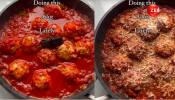London: With one month to go until Britain`s general election, experts are poring over opinion polls for clues about what will happen in the closest race in decades.
Though the ultimate outcome remains unknown, surveys do offer some idea on whether David Cameron may remain prime minister after May 7 voting.
- The polls have been consistent for months.
Cameron`s centre-right Conservatives, currently senior partners in a coalition government, and Ed Miliband`s centre-left opposition Labour are neck-and-neck. The BBC`s opinion poll tracker currently puts the Conservatives at 34 percent and Labour at 33 percent. This suggests neither party will be able to form a government alone.
- The success of smaller parties is the story of the election so far.
The Conservatives and Labour have dominated British politics since the 1920s. But now the two-party system is fragmenting, which could mean the Conservatives or Labour may have to team up with a smaller party or parties to govern.
Nigel Farage`s UK Independence Party (UKIP), which wants Britain to leave Europe, is polling at 15 percent while the Greens are on five percent. In Scotland, the Scottish National Party (SNP), which wants independence from Britain, looks set to replace Labour as the biggest party.
- National percentage support does not decide the election.
While these figures offer a guideline of how each party is doing, the next government will be decided by how many seats in the House of Commons each party wins. For election purposes, Britain is broken down into 650 local constituencies. To form a government, a party needs to win over half of these -- at least 326.
- Predicting how many seats each party will win is much harder than measuring percentage support.
The Guardian newspaper`s projection currently suggests that the Conservatives will win 276 seats and Labour 270. It gives the SNP 50, junior coalition partners the Liberal Democrats 28 -- half their current figure -- and UKIP four.
- There may be some big name casualties.
The Liberal Democrats` deputy prime minister Nick Clegg could be among those to lose his seat and his career, according to polling commissioned in his constituency by Michael Ashcroft, a wealthy former Conservative peer.
- So what will Britain`s government look like after the election?
Nobody knows, but most polls indicate that either the Conservatives or Labour will have to team up with one or more of the smaller parties to get enough seats to govern. "One way of summing it up is that it has been a war of the weak," said Gideon Skinner of pollsters Ipsos MORI. "It certainly points to a tight race with an uncertain outcome."
















